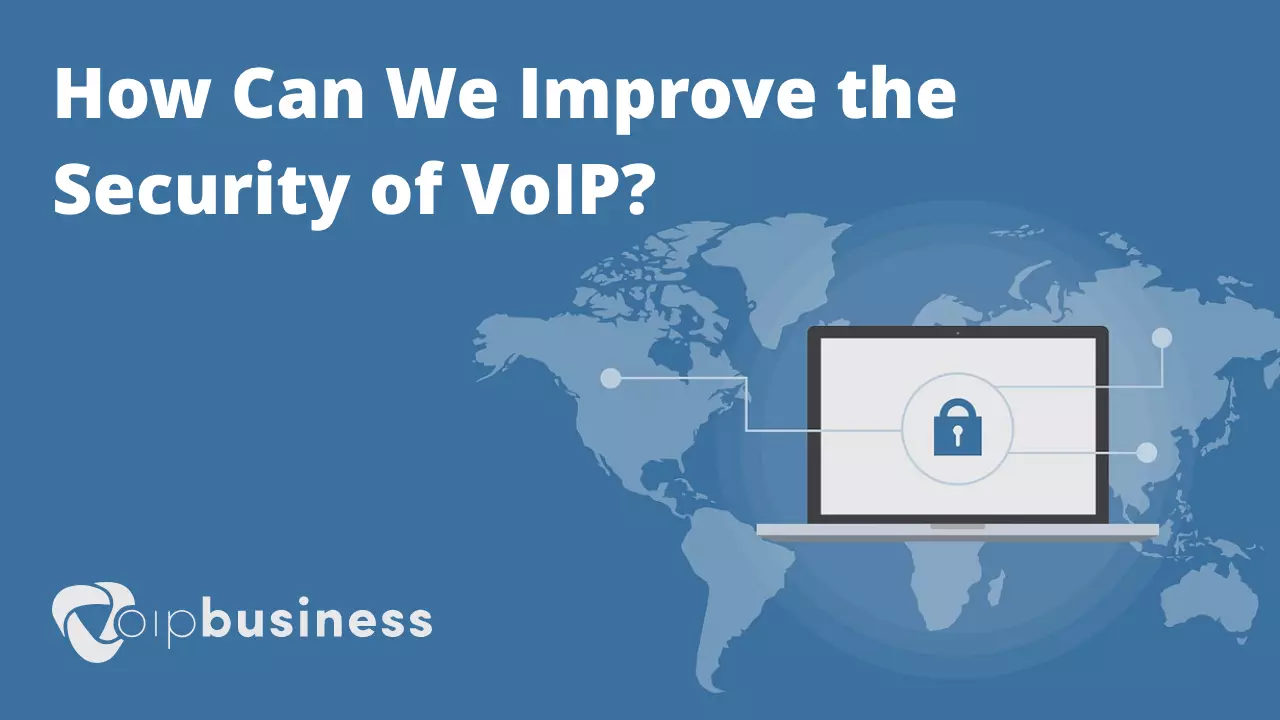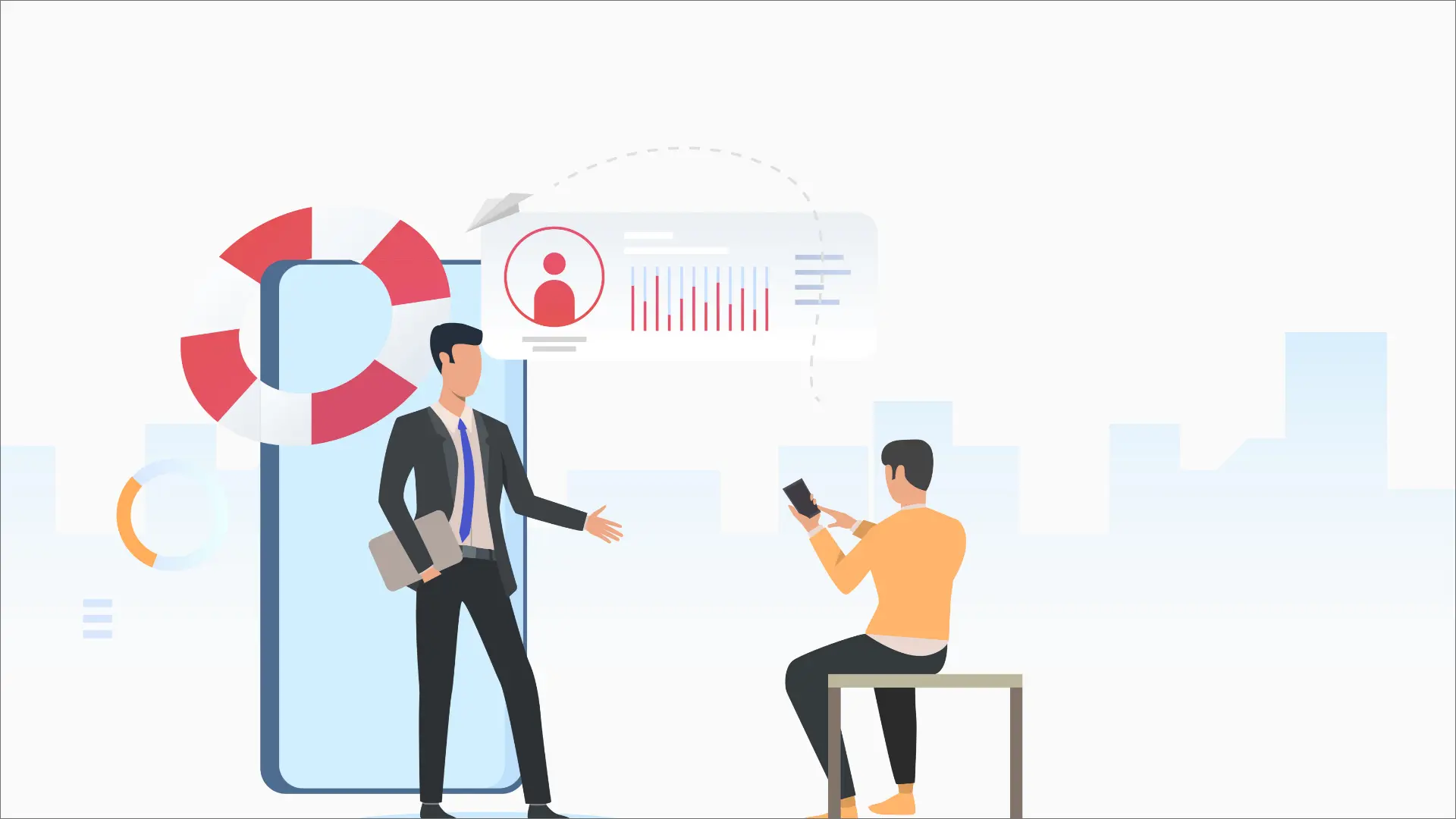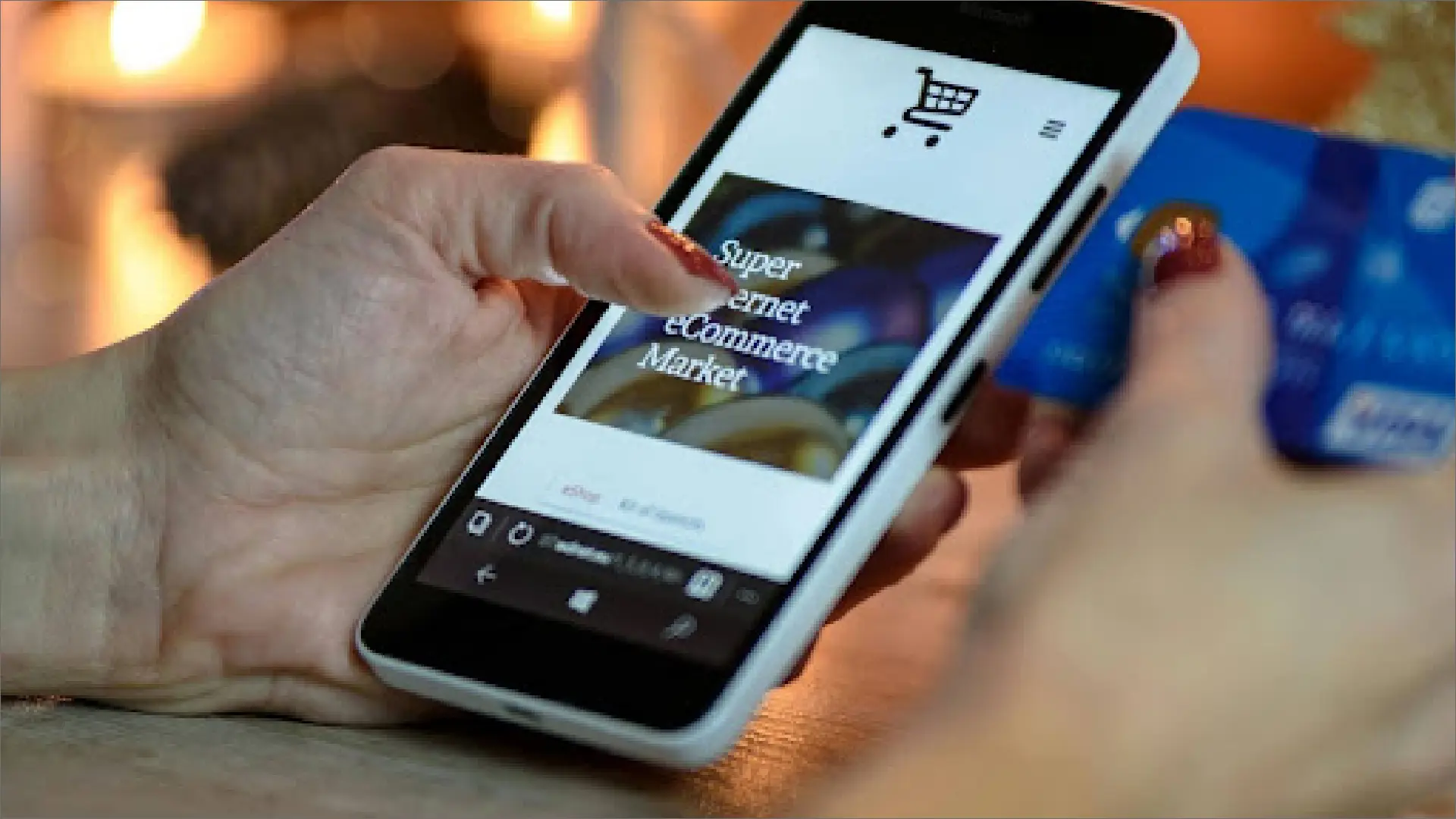VoIP is a great technology for fast, practical, and easy telecommunications. Plenty of information has been conveyed about VoIP cyber security on television. Like the internet protocol, it is prone to interference, but it doesn’t need to be. Moreover, you may be interested in finding out: is VoIP secure?
In this article, we will provide you with insight into the security risks to VoIP and how to make it safer.
As a VoIP expert, it is common to be questioned about VoIP cybersecurity at one point or another by the viewers. That is why being knowledgeable about the topic we will guide everyone who needs help from you.
Is it Secure to Make Calls from VoIP?
VoIP operates by transmitting information across the web. For example, it works by placing telephone calls digitally instead of making them by conventional telephone lines.
Since the calls are made from the internet, they can be hackable if they are not secured. They can be invaded, and in some instances, the VoIP technology can be intercepted to control the server.
The great news is that VoIP is securable by utilising some effective cybersecurity methods and guidelines. So you may ask yourself, what are the cybersecurity risks with VoIP? Is VoIP Safe From Hackers?
What are Cybersecurity Risks Associated with VoIP?

How Can We Improve the Security of VoIP?

You can achieve online VoIP protection by implementing some simple methods. The list of these methods is short. So all those asking the question, How can we make VoIP secure? Can read further to find out more information.
1. Encrypt All your Data
Encryption is one of the best methods of guaranteeing that the data transmitted on the web can’t be viewed if someone is intercepting it. So if you have been considering, is VoIP secure? Then experts have an answer for you that with encryption, it’s secure.
That is very beneficial if your customers are having discussions that must be kept secret or would harm the company’s image if the information is leaked.
Ensure you encrypt everything transmitting on the VoIP and SMB servicer and encrypt the information at several locations to make it difficult for the hackers. By finding out about encryption, you can understand what are the cybersecurity risks with VoIP?
2. Make Solid Passwords
For all those people who want to find out how can we make VoIP secure? They can read our password creation tips since a perfect password is the foundation of cybersecurity.
Ensure the routers and servers have solid passwords. Also, it would help if you made sure IP switches and firewalls have good passwords. Adhere to these standard guidelines:
- There should be a mix of letters (capitalised and lowercase), numbers and symbols.
- There should be a mix of letters (capitalised and lowercase), numbers, and symbols.
- There should be a new password for every gadget or platform.
- Your password must have more than 12 characters.
- Your password should not be a word from the dictionary.
- There should be no clear replacements (for instance, a zero in place of an o).
3.Completely Inspect the Network
If you are still concerned about: is VoIP secure? Then you should put resources into standard penetration testing.
Penetration testing is the activity in which an IT expert intentionally hacks frameworks to perceive how weak they are. Then, when the shortcomings are known, the expert removes them from the system.
4.Utilise a VPN
A VPN is a perfect method of securing information travelling over the web. You can find out how to choose the perfect VPN provider for your needs in PrivacyJournal guide. In addition, a VPN serves as an internal network by making a private network that facilitates information dispatching.
Creating a VoIP over a VPN secures the SIP by generating the portal. That is both private and safe. Also, that is undetectable. All those who have been trying to find out what are the cybersecurity risks with VoIP? Can benefit from the above point.
5.Activate a Network Address Translation (NAT)
NAT is a facility on routers that offers a private IP address to telephones, PCs, and other web gadgets.
The private IP address is only visible on your LAN (Local Area Network). If a hacker can’t detect an IP address, the network cannot be remotely controlled.
A VoIP telephone that owns a public IP address is available for hacking.
So in simple words, NAT is a router facility that allows communication between VoIP phones, PCs and other gadgets with a specific IP address that can only be viewed on your Local Area Network (LAN). That is called IP masking, and it serves as a shield between the phone and traffic on the web. So if a hacker cannot find out the private IP address of your gadget, then he cannot interfere with the device from another location. So read further and we will tell you, how can we make VoIP secure?
VoIP phones that don’t utilise NAT are prone to the manipulation of hackers. They often utilise automated software to inspect the nodes that are not secure by NATs. A VoIP phone with a public IP address may become overcrowded by ghost calls dialled on your phone to find out about its technology. That is an interception technique utilised by hackers to find out the technical details of the device they want to access. That is the reason working with a private IP address is necessary. NAT is an extra protection layer between the VoIP phone and those considering gaining unauthorised access.
6.Deactivate Phone Web User Interface
The VoIP telephone’s web user interface permits you to assign and refresh many necessary telephone attributes, including the business VoIP accounts subscribed for the phone, codecs, and call settings. You can also configure features like network and SIP settings. The web interface also permits you to download backup data of the telephone, showing the usernames and passwords of the telephone’s users in simple text. So if you are thinking that is VoIP secure? then you must keep inspecting your VoIP phone’s activity.
The business telephone’s web user interface is presumably the easiest to hack for interference. It is a helpful instrument when appropriately utilised. Yet, it is a typical medium for hackers to control your VoIP network so that they can intercept your business telephone calls for malicious purposes.
Hackers don’t need to be on the telephone’s LAN to get to a telephone’s web user interface. Instead, they can do it from a distance by using the Internet. All they require is the telephone’s private IP address. If you have been searching What are the cybersecurity risks with VoIP? Then you can consider your VoIP telephone’s private IP address manipulation to be one of those risks.
The password security for a telephone web user interface is not secure enough. Plenty of VoIP phones are developed with in-built passwords that the owners never change. But, if the password is even reset, the hacker can find out the log-in parameters by utilising a key cracking program.
That is the reason we recommend switching off your telephone’s web interface completely. You can generally re-activate the web user interface at some other time if you prefer to reset specific settings. Although you can reset plenty of settings from the actual telephone, deactivating the web interface differs for each telephone model. View your telephone’s documentation or call customer support for complete guidelines. With this point you have found out How can we make VoIP secure? By deactivating the phone’s web user interface.
7.Shutdown Port 80 Via Firewall
On a router, a port is a data transmission channel to the web. VoIP telephones on a LAN need to link with ports to gain access to the web. Ports on a router have numbers between 0 to 65535. Ports 0 to 1024 are saved for use by particular services. For example, Internet traffic for File Transfer Protocol (Port 20), Hypertext Transfer Protocol (Port 80) and Secure Shell (Port 22) goes through the ports that have been reserved for a particular protocol.
Port 80 is specifically prone to hackers because the data passing through it is on HTTP. That is the type of traffic you will find on plenty of websites. The internet interface for the VoIP phone is in HTTP as well. That means the hackers can easily intercept the Port 80 of your router and reach out to the web interface like a public website. You must shut down Port 80 to prevent anyone from accessing it by a public IP address. So if you have been thinking with active Port 80, is VoIP secure? Then you have the answer, it must be deactivated.
A wide variety of VoIP interceptions that occur are easily preventable. The hacks that occur consist of interference with the web interface or open port 80. The experts advise shutting down both channels to reduce the possibility of hacks.
8.Deactivate International Calling
Plenty of hackers prefer gaining access to business VoIP phones for manipulative purposes. The hackers try to utilise calling minutes for costly international numbers. If you do not want to place international calls for everyday operations, it is advisable to deactivate international calling entirely. So if you want to find out how can we make VoIP secure? You should discontinue international calls placement.
If you want to place calls to a country other than yours, you can buy a calling card as an alternative. But if international calling must be allowed, then you should ensure that you monitor your call records.
9.Monitoring VoIP Exploits
Hackers who want to undermine your cloud phone framework will often exploit your system during weekends, vacations and off business timings and at times when few employees are working in the company. The hackers will like to make calls while utilising your expenses when you or your service provider doesn’t know about it. So a question might come into your mind: that is VoIP secure? It is not hundred per cent secure but you can make it completely secure, by reading our post.
You must implement a security plan to make your VoIP secure. In that case, you should begin by monitoring your call activity at the off-hours or set up an automatic alert mechanism that indicates any suspicious increase in phone utilisation. Applying the security measures discussed in this blog will ideally decrease the possibility of people intercepting your VoIP system.
If you consider that someone is undermining your VoIP system by hacking, you must deactivate all the vulnerable gadgets. You must create a call detail record summary to determine precisely how many illegal calls were placed by your telephone system. Then you must call the service provider’s customer service to find out about the activity and safeguard your gadgets.
With all the above tips you can find out how can we make VoIP secure?
Conclusion
VoIP is an excellent innovation for quick, practical, and simple communications on the telephone. So the web protocol is inclined to interception, but it shouldn’t be. VoIP works by transferring information via the internet. For example, it operates by facilitating the placement of online telephone calls instead of carrying them out by the phone lines. You can secure your VoIP system in these ways:
- Encrypt All your Data
- Make Solid Passwords
- Completely Inspect the Network
- Utilise a VPN
- Activate a Network Address Translation (NAT)
- Deactivate Phone Web User Interface
- Shutdown Port 80 Via Firewall
- Deactivate International Calling
- Monitoring VoIP Exploits
By encrypting your data, you ensure that any external party cannot find out the actual information. Also, making solid passwords is a great way of ensuring that your VoIP network and devices are secure. A detailed inspection of your network will reveal any vulnerabilities in your system. So if you have been trying to find out is VoIP secure?
We have got the answers for you. By utilising a VPN, you can set up a secure private network that can facilitate your employees to carry out secure communications. Also, activating NAT (network address translation) can allow you to create an IP mask, so the hackers don’t reach your network. Finally, deactivating your phone’s web user interface will prevent any illegal access to your VoIP system.
Moreover, port 80 is the most vulnerable port on the VoIP network; that is why shutting it down is a necessary measure for securing your network. By deactivating the international calls feature, you can prevent hackers from gaining access to your VoIP calling facility if you are not making any international calls. You can avoid any exploits in your VoIP system by inspecting it in detail to discover any areas hackers can exploit. We hope that this post will help you to find out what are the cybersecurity risks with VoIP and how you can reduce these risks.




